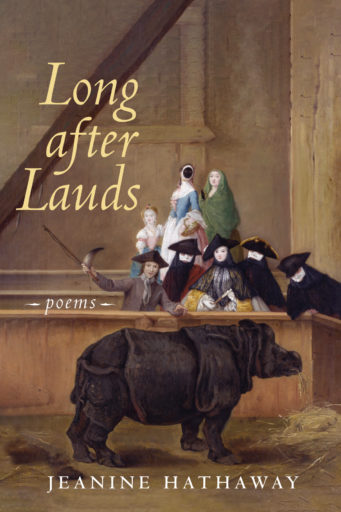

In the opening poem of Matthew Porto’s dazzling debut collection, we hear the voice of the recurring angel figure for the first time, commanding us to “Get used to the light.” That light—blinding, mysterious, unsettling, but occasionally illuminating—shows up again and again in Porto’s taut, elegant poems.
| Hardcover | ISBN 9781639821570 | $29.00 |
| Paperback | ISBN 9781639821563 | $17.00 |
| eBook | ISBN 9781639821587 | $12.99 |
In the opening poem of Matthew Porto’s dazzling debut collection, we hear the voice of the recurring angel figure for the first time, commanding us to “Get used to the light.” That light—blinding, mysterious, unsettling, but occasionally illuminating—shows up again and again in Porto’s taut, elegant poems. As he writes in another poem: “Some light, it’s true, makes it to us, but always / refractory, errant, struggling to deign downward.”
The occasions for these poems range from encounters with ancient biblical and mythological tropes to fresh translations of elegiac Anglo-Saxon verse to sojourns from Texas to Taiwan and Vermont to Venice.
Holding everything together—the themes of love and responsibility, memory and forgetfulness, loss and hope—is the grammar of the moon, ever-changing, yet ever-present. Here is a fully mature poetic voice, one which former U.S. Poet Laureate Robert Pinsky rightly hails as “ingeniously alert, compelling, and unpredictable.”
Moon Grammar presents an exciting, distinctive poetic voice, with tremendous energies of truth and renewal along with formal command. In the violence and enigma of Genesis, or in the touristic ironies of Ezra Pound’s grave in Venice, or in a domestic interior of long-ago Vermont, Matthew Porto is ingeniously alert, compelling, and unpredictable.
Robert Pinsky, former Poet Laureate of the United States
Even when “there was nothing heroic about the harbor,” Porto makes the raw material of place—Venice, Ithaka, Scranton—feel essential to the meaning of the past—as if the answers to impossible questions can be found if the poet can brave the act of “disturb[ing] its old air.” In gorgeous elegies, Porto shows us that “a wound is an opportunity.”
Jasmine V. Bailey, author of Alexandria and Disappeared
Porto’s poems reach across time and traditions not to resurface forgotten stories but to invite us into the knowledge that these stories already live within us. In verse which dashes effortlessly from companionship to eros, pub songs to awe at the sublime, Porto compels us to reconsider our experience of life on earth—life with one other. These poems seek to attune us to the signals of forces and presences beyond our comprehension and postulate the improbable: that these presences are likewise orienting themselves toward us.
Eric Parkison, author of No Arcadia
There are moments in Moon Grammar when Matthew Porto’s poems seem to have been composed in the shadow of an angel’s wing, in their purity and directness. Porto’s epiphanies, however, are recognizably our own. They are “muddy, augural, greased with sunlight,” and resourcefully they seek an accommodation with our fallen condition. These poems are avid, intelligent, and humane.
Karl Kirchwey, Professor of English and Creative Writing, Boston University